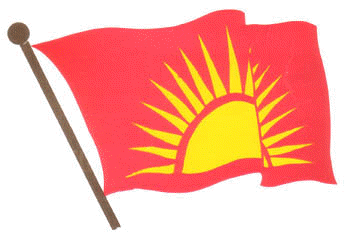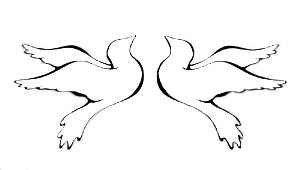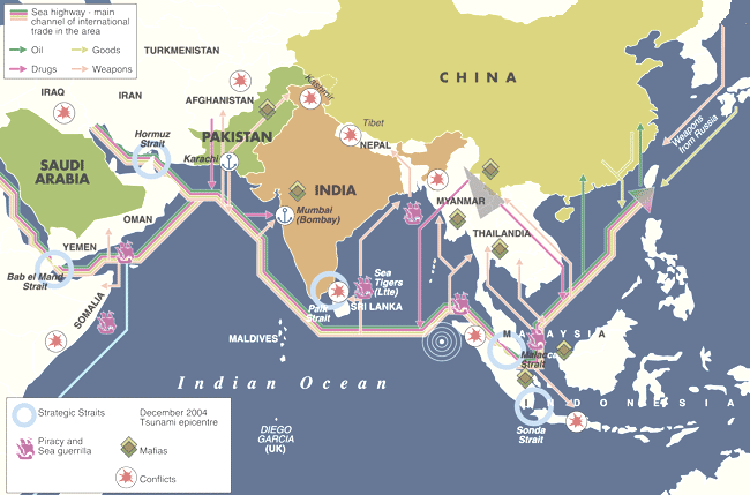Today as I write the Sri Lankan Armed Forces have suffered a serious set back. They were trying to breakthrough into the Tiger heartland Vanni but failed miserably. The CNN reported from Colombo: � More than 100 Sri Lankan soldiers were killed and another 400 wounded Wednesday when troops attempted to advance toward a stronghold of the Tamil Tigers rebel organization, highly placed army sources told CNN.�
This defeat will have a massive psychological impact on the Sri Lankan Armed Forces.
In short, the Government plan of �eliminating� the Tamil Tigers is seeming to be a lost cause. This war has done nothing much but, to alienate the Tamil society as a whole and Tamils view the Government�s elimination tactic is nothing but a secret policy of genocide. The Tamils have repeatedly said to the world that all what�s happening in Sri Lanka is a blatant denial of human rights; and this war is illegal. (Appendix A)
The Tamil resistance movement is defending its people against state terror.
In this backdrop, one has to reflect on the peace industry world-wide. Norway has managed to grab the centre of attraction in the peace industry. But one must ask the question, where in the world have they achieved peace? Palestine, Sudan, Sri Lanka. No way Norway, is the answer.
Sri Lanka chose to breakaway from the cease-fire agreement which Norway brokered. The world was silent. There was hardly any condemnation. Yet, some countries chose to supply arms and intelligence to Sri Lanka to defeat the Tamil armed struggle. Norway made some favourable noises. Yes, but thanks for the support.
The quixotic approach of the peace industry towards practical peace is highly politically charged and hilarious.
As for Sri Lanka, with numerous rounds of overtures of peace with regional and international support, all what it has achieved is to go round the bend. It is far from a virtuous cycle but a political circus. Complete bamboozling of the war torn masses.
Don�t get me wrong. I�m for peace but not a peacenik. None of the peace initiatives in Sri Lanka has ever addressed the core issues that divide the communities. Further more, it has failed to tackle the non-pluralistic constitution of Sri Lanka let alone honouring the self-determination struggle of the Tamil-speaking nation.
All what it has done is to give a pretence of peace. And that includes foreign trips, conferences, plush hotels and media interviews etc.
But all along the �elimination plan� is on top of the agenda. Peace? Puff�
The world must now ask the Sri Lankan Government: Quis custodiet ipsos custodes? Who will guard the guards?
A Statement by the Asian Human Rights Commission
Sri Lanka: International Independent Group of Eminent Persons (IIGEP) departs - a Requiem for Justice and Human Rights
For Immediate Release AHRC-STM-096-2008, April 16, 2008
The eleven-member International Independent Group of Eminent Persons (IIGEP) consisted of representatives from India, France, Indonesia, the United States, the Netherlands, Bangladesh, Canada, Cyprus, the United Kingdom, Australia and Japan, abandoned their efforts to assist the Presidential Commission of Inquiry to Investigate and Inquire into Serious Violations of Human Rights. They were convinced, after a year of strenuous effort, that they had been trapped in a futile exercise from the point of view of justice and human rights and that the only purpose they were expected to fulfill was to lend credibility to a sinister plot to deny justice. Having seen through the illusion it was only natural for them to have abandoned it.
The departing international experts submitted a report to the president in which they blamed the government for the absence of will to inquire into gross violations of rights and to ensure respect for the norms of justice and human rights. They gave the following reasons for their decision to quit:
1. A conflict of interest in the proceedings before the Commission
2 Lack of effective victim and witness protection
3. Lack of transparency and timeliness in the proceedings
4. Lack of full co-operation by State bodies
5. Lack of financial independence of the CommissionThe IIGEP has recommended the following to the president of Sri Lanka:
1. That the President should ensure that all State bodies comply with international norms and standards and his directive to provide full disclosure of information and cooperation to the Commission.
2. The Government should respect and implement the internationally agreed doctrine of command responsibility as part of the law of Sri Lanka, whereby superiors of those who have committed criminal acts may also be held responsible.
3. The Government of Sri Lanka should establish, as a priority, a workable, effective and permanent system of victim and witness protection. The Commission should endeavour to train the staff of its victim and witness protection unit in order to provide the optimum level of security and assistance to potential witnesses. The IIGEP also calls for the establishment of a facility whereby essential witnesses, who have left Sri Lanka, and who can continue to give first hand evidence as to some of the events under examination by the Commission, can give their oral evidence to the Commission by video-links under conditions of complete safety. In this respect, international support to the Commission has proven critical.
4. The Commission of Inquiry should include in the course of its inquiries an examination of the reasons for systemic failures and past impunity in relation to the cases under review, and consider the making of recommendations for the eventual appointment of independent special prosecutors in cases in which the security forces have been involved in serious human rights violations.
5. The Government of Sri Lanka should provide the immediate and necessary financial resources to the Commission of Inquiry, and place adequate funds at its disposal, to enable it to fulfil its mandate.
6. The Government of Sri Lanka should not entrench the role of the Attorney General as counsel assisting the Commission of Inquiry through legislation.
A Post Mortem Report
The IIGEP report should be treated as a post mortem on the dead body of the Sri Lankan criminal justice system. It would be na�ve of the IIGEP members to believe that the president is going to implement any of their recommendations. The value of the recommendations is that the issues raised point out the areas in which the disease within the Sri Lankan justice system has spread. One of the most vital organs of Sri Lanka�s justice system that is serious infected is the Attorney General's Department.
When the Patient becomes the Doctor
The Attorney General's Department is being seriously criticised by the IIGEP. However, it is the Attorney General himself who is telling the world that the criticisms of the IIGEP are not well-founded. In any credible system, once serious allegations of this nature are made against one of the most important national institutions it would be an authoritative body of competent and impartial persons who would have investigated the allegations and, if found true, would have suggested remedial measures. However, in this instance the patient himself has become the doctor.
At some point in time in the latter part of the 20th century the Sri Lankan state decided that the pursuit of justice would not be one of its serious concerns. In fact, the subversion of justice became a state policy. The most decisive time for this was the period of rule by President J.R. Jayewardene, the first executive president of Sri Lanka. All executive presidents thereafter have pursued this same state ideology. Ruling parties may differ, but the decision to kill the basic justice framework of the country is not an issue on which they differ. Each regime�s propaganda agents may differ, but the agreement to deliberately destroy the country�s justice framework has never been an issue on which they differed.
The country�s population is deeply aware that Sri Lanka is a burial ground for justice. For whatever the reasons, the country�s intellectuals who are thoroughly aware of this do not think it worth a fight, perhaps knowing that the fate of the justice system was part of a bigger transformation within the political system. There is nothing that the ordinary folk can do, but they do protest in their own simple ways. There is no one to give expression to their frustrations and the injustice that they routinely suffer.
There is also the strongly unifying opinion that justice is a superfluous interest and that in the name of the struggle against terrorism justice is not a serious enough issue to be bothered about. The argument that even within a civil conflict the state has obligations towards everyone and particularly the civilians, who suffer, is not treated as anything other than romantic nonsense.
The IIGEP experts saw for themselves the state of justice in Sri Lanka. They owe an obligation to the world to help it understand what type of place Sri Lanka has become. Without an in depth understanding of the diseases affecting the justice system it is not possible to develop a serious local or international discourse on human rights in Sri Lanka.
# # #About AHRC: The Asian Human Rights Commission is a regional non-governmental organisation monitoring and lobbying human rights issues in Asia. The Hong Kong-based group was founded in 1984.


 "...The
quixotic approach of the peace industry towards practical
peace is
"...The
quixotic approach of the peace industry towards practical
peace is
